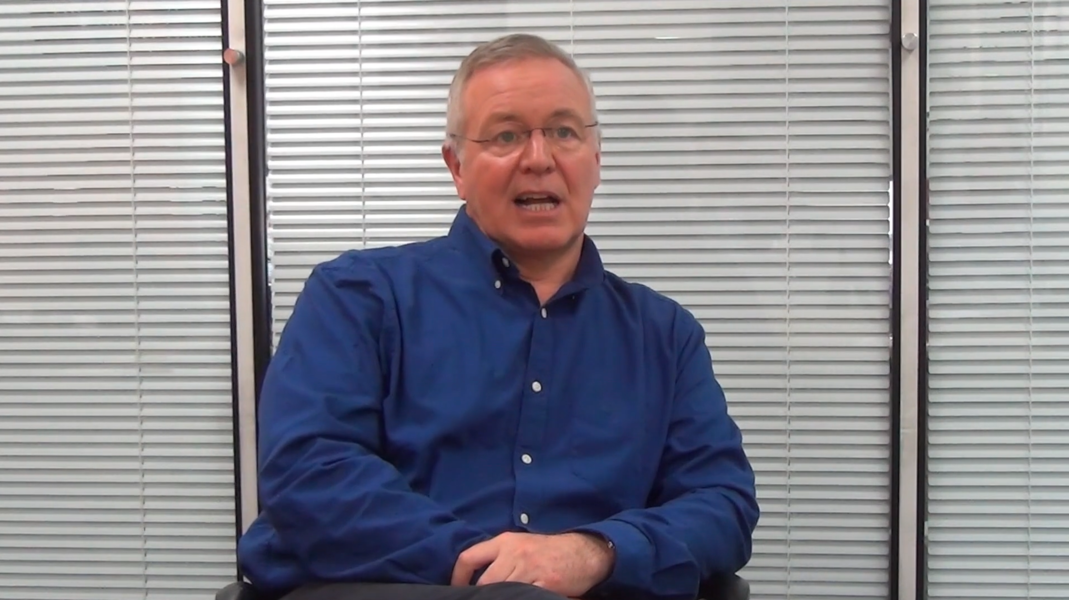We meet Paul Greeves MBE, Managing Director of 1st Option Safety and former Director of Workplace and Safety at the BBC.
In this video, Paul discusses, What makes a good health and safety professional? What unique health and safety challenges are faced in the media industry?
As a former Lieutenant Colonel in the Parachute Regiment and Special Forces, Paul also offers insight into Why are there a large number of Ex-Forces personnel in health and safety?
1st Option Safety Group is the leading provider of safety advice, support, training and equipment to the media and entertainment sector. From Britain’s Got Talent through to the Rugby World Cup and The Jump - if you saw it on TV, in a cinema or at a live event the chances are they provided the safety support to make it happen.
‘Safety bytes’ are a series of short videos published regularly online for the health and safety industry. In this series, we talk to a variety of people working in the industry, from education providers, membership bodies and academics, through to CEOs and leaders from across the health and safety industry.
In this, the second edition of, ‘Safety Bytes’ we meet with Paul Greeves MBE and Managing Director of media and entertainment specialist 1st Option Safety.
In this video, Paul discusses, What makes a good health and safety professional? What unique health and safety challenges are faced in the media industry?
As a former Lieutenant Colonel in the Parachute Regiment and Special Forces, Paul also offers insight into Why are there a large number of Ex-Forces personnel in health and safety?
1st Option Safety Group is the leading provider of safety advice, support, training and equipment to the media and entertainment sector. From Britain’s Got Talent through to the Rugby World Cup and The Jump - if you saw it on TV, in a cinema or on live TV, chances are they provided the safety support to make it happen.
Does Health and safety receive unfair criticism?
I think things have changed actually, and we find most people receptive to sensible health and safety. If you offend people’s common sense and talk to them about trivia then you’re sure to get a negative response. However, with significant risks, people want it to be controlled, they want to be safe. They expect you to keep others safe and they're open to support in that.
What makes media safety different?
Well I think if you ask anybody in any sector they will say it has unique challenges. I think it's particularly the case in media because every show is different, or at least people try and make them different.
So you're facing difficult challenges all the time, and the variety of situations which our safety advisors find themselves facing is immense. From journalists in wars zones, through to Actors on location, working with animals, stunts, special effects, audiences, the list is endless.
What do you think is the best approach?
There are judgments to be made always, and as you know reasonable practicability is not an exact science.
Most people want to be safe. They recognize the business needs and indeed the moral imperative of it. You strike a balance between the risk involved after you've done everything to control it and the editorial benefit of it. How important is it to do this and can it be justified? We start from the position of trying to get things done and to help create the content that people want to make and not to get in the way of that.
Are celebrities challenging when it comes to health and safety?
I wouldn’t single out celebrities as a particular challenge. I think most people are quite sensible these days about safety provided that you don't offend their common sense.
As a former Lieutenant Colonel in the Special forces, why do you think so many ex-forces personnel pursue careers in safety?
They are successful, I think, because they're comfortable taking some responsibility for people's safety and that to me is the key requirement for a good Safety professional because it isn't all about enforcing rules and minimizing risk, but of course that is a part of the job, but actually a good safety professional makes judgements and carries a bit of responsibility for those judgements and I think people value that.
Can you recommend any essential kit for the would-be war reporter?
Yes we do have an array of equipment for the would be war reporter the more unusual items, I guess I would pick out the blast boxes, and these are blast proof sets of underwear. These were actually developed by the Army in Iraq and Afghanistan in response to the prevalence of roadside bombs and IEDs. And I guess while it may appear somewhat comical, but actually if you find yourself in the proximity to that kind of explosion. It's probably comforting to know that you're important parts are protected.
